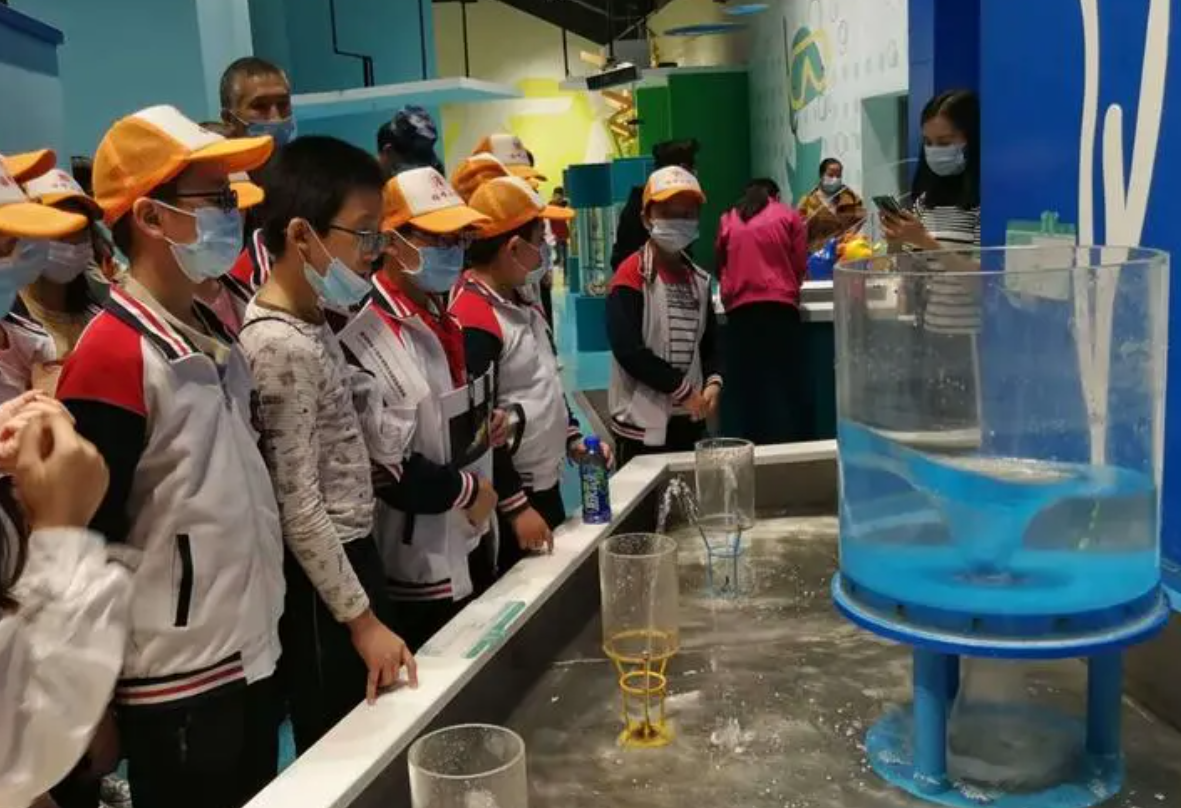
Science education is not only an important way to cultivate students' comprehensive quality and innovative ability, but also a key force to promote social progress and development. At the moment when artificial intelligence promotes the accelerated change of production mode,
Tianli Education actively responds to the national trinity strategy of "education, science and technology, and talents", and deeply digs the value of scientific literacy in the basic education stage.
To this end, Tianli has set up a professional intelligent education research team, built an AI intelligent education platform that can efficiently analyze teaching front-line data, and provided teachers and students with a variety of science education practice resources through Tianli Science and Technology Museum,
TLI science and technology courses and self-developed intelligent education platform. These measures are designed to help teachers and students enjoy industry-leading comprehensive information science literacy education services in the era of artificial intelligence, seize the opportunity in the future social competition, and contribute more to the construction of comprehensive national strength.
Hangzhou Foreign Language School: Do a good job in science education "addition"
Walking into the Yangtze River Delta integration and development theme exhibition area of the Expo, the booth of Hangzhou Foreign Language School was crowded with many students and parents around a large "City of the future" model, listening to Wang Jiarui, the sister of Hangzhou Foreign Language, about the future 100 years of science and technology city.
Wang Jiarui, a second year student of Hangzhou Foreign School, introduced the vision of the "City of the Future" to the visiting children
"We imagine this future city, located at the mouth of the Yangtze River, it has a set of power generation tourism system and cloud rail system, traffic scheduling is particularly convenient;
20% of the city's total electricity consumption is driven by tidal and wind power generation, and 80% is driven by daily nuclear power. In the city, there are landmark buildings such as distribution center,
theater, artist's house, vitality center, library, city balcony, citizen activity center, city science and innovation workers' home, city park for residents' recreation, and Sky Farm is a vertical agricultural ecosystem.
We want the city to have 68 to 75 percent high-tech, only 1 percent heavy industry, and the rest made up of commerce and tourism..."
As a project with the participation of a group of 10 students in Grade Two, Hangzhou Foreign Language School's "City of the Future" participated in the national "City of the Future" exhibition last year and won the first prize.
Wang Jiarui told reporters that the students made a detailed introduction to the expert judges on the scene, especially focusing on the environmental protection concept and sustainable development potential of urban construction, and finally passed the defense successfully and won the recognition of the experts.
There are many science and technology projects like this in Hangzhou Foreign Language School. "Smart Agriculture - Interdisciplinary design based on real situations and curriculums" is another research project carried out by teachers and students.
This project is based on engineering thinking to design tasks, guide students to investigate the real situation, through the control of environmental parameters, adjust the effect of strawberry planting,
aiming to make the growth of strawberries not affected by the season, while achieving greater yield and better taste. The reporter learned that the project successfully entered the top 10 of the 2023 National steam Education Development Conference.
The parent-child family came to the booth of Hangzhou Foreign Language School to stamp and punch the card
According to Zhang Pengfeng, a technical teacher of the school, the education goal of Hangzhou Foreign Language School is to cultivate interdisciplinary preparatory talents with "national feelings,
global vision and profound literacy". "We emphasize that we need to step out of the 'problem solving' to 'solve problems' and do a good job of' addition 'in science education."
Zhang Pengfeng said that the so-called "addition" here is "science education = social vision + scientific inquiry + technology empowerment + engineering practice", which social vision includes international vision,
national feelings, empathy, scientific inquiry refers to scientific thinking, scientific literacy, technical empowerment refers to computational thinking, technical means, engineering practice refers to engineering thinking,
realistic constraints. Based on this, the school has built a "1+n" science curriculum system and created numerous disciplinary inquiry activities. "For example, we will lead students to make water rockets and potential energy cars,
explore bridge bearing and bridge design, and participate in microbial painting and illustration, etc. Such disciplinary exploration activities will integrate mathematics,
physics, chemistry, biology, technology and other courses, and help students solve practical problems in real life through interdisciplinary learning and project-based learning."

